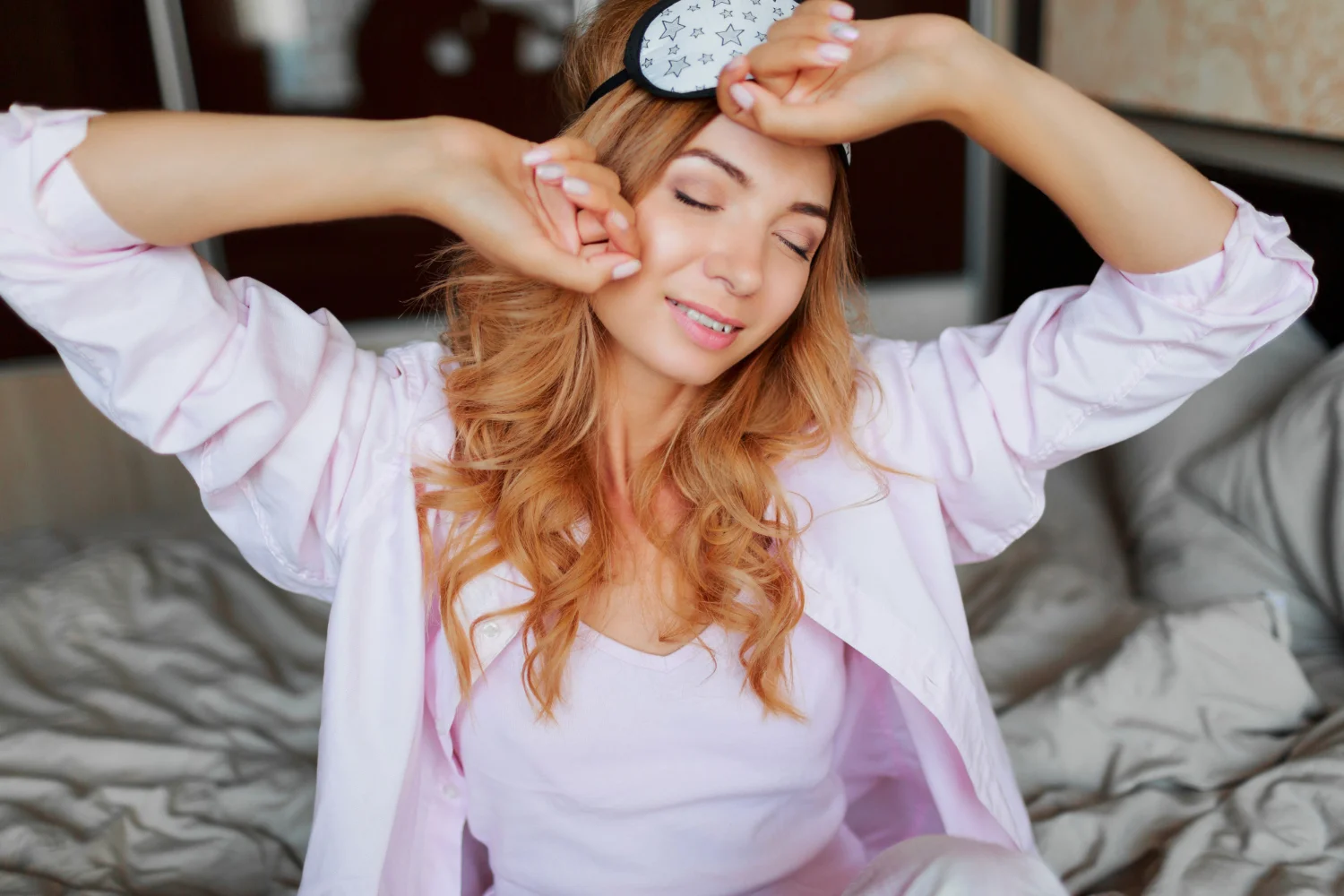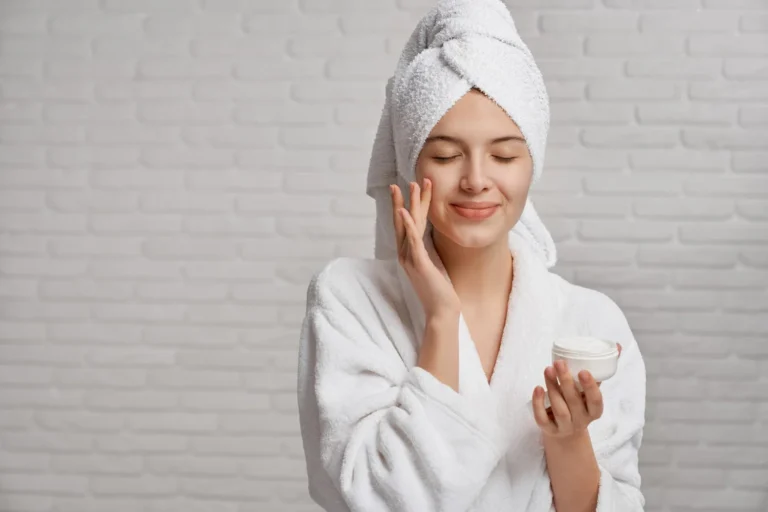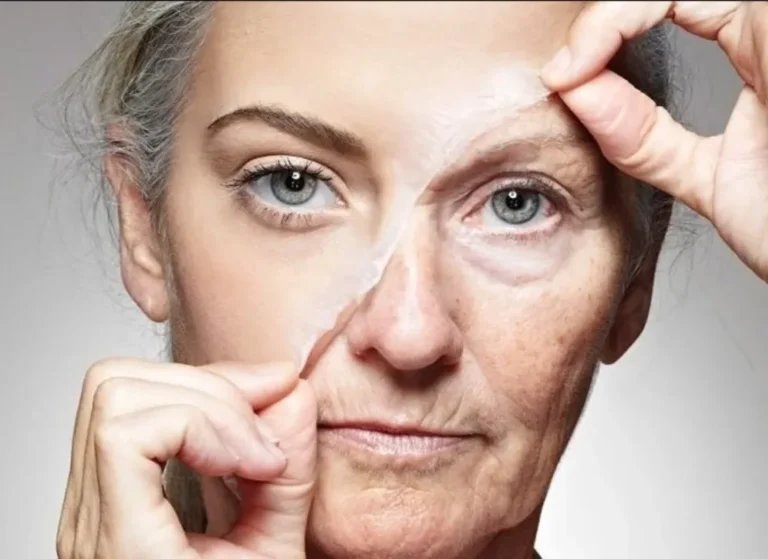The Secret to Flawless Skin? Prioritizing Beauty Sleep
How’s your sleep cycle lately? Chances are, you’ve likely sacrificed more than a few hours of shut-eye to scroll through social media or catch up on work emails. While missing out on sleep may seem harmless, it can wreak havoc on your skin. You may be surprised to learn that the secret to flawless, glowing skin isn’t an expensive face cream or serum—it’s prioritizing beauty sleep.
Getting adequate rest is essential for skin health and rejuvenation. When you sleep, your skin repairs damage from environmental stressors and regenerates new skin cells. Lack of sleep, on the other hand, leads to increased inflammation, slowed cell regeneration, and even premature aging of your skin. If you want to wake up looking refreshed with a bright, youthful glow, aim for 7 to 8 hours of sleep per night. Your skin and your entire body will thank you for it. So make getting your beauty rest a top priority, and you’ll be on your way to smoother, clearer, more radiant skin.
What is Beauty Sleep?
“Beauty sleep” is a term used to describe good quality sleep that can improve your skin health and appearance. Humans sleep in stages, and there are four stages in a full sleep cycle. Three of these stages are Non-Rapid Eye Movement (NREM), followed by a fourth and final stage called Rapid Eye Movement (REM). The first two stages of NREM sleep are a lighter rest when the muscles start relaxing and the heart rate, breathing, and eye movements all slow down. The third NREM stage, however, is called “deep sleep” or “slow-wave sleep.” This is a highly restorative period, and it is the phase when your body repairs itself and can have the greatest impact on your physical appearance. When you sleep for eight hours a night, you should get the ideal ratio between slow-wave and REM periods. Both are important, but slow-wave rest is mostly responsible for the restorative properties of rest and as mentioned, most helpful for the appearance of your skin. Therefore, “beauty sleep” is, essentially, good quality sleep.
Benefits of Beauty Sleep
Getting enough sleep isn’t just beneficial for our physical and mental well-being; it can also improve the look and health of our skin. For many people, great skin is a major confidence boost, and combined with the other holistic benefits of sleep, a good night of rest should have you looking and more importantly, feeling your best all-around. Here are some of the benefits of beauty sleep:
Reducing Wrinkles
The skin is made up of several proteins, such as collagen and elastin, that make the skin elastic and flexible. During sleep, your body produces collagen, which helps to reduce wrinkles and fine lines. A lack of sleep can lead to a decrease in collagen production, which can cause wrinkles and fine lines to become more prominent.
Enhancing Complexion
Regular quality sleep may also play a role in maintaining a clear skin complexion. The circadian rhythm, or the body’s internal clock, regulates the production of certain hormones that can affect the skin’s appearance. For example, melatonin, which is produced during sleep, is a powerful antioxidant that can help to protect the skin from damage caused by free radicals.
Reducing Dark Circles
Dark circles under the eyes are a common sign of sleep deprivation. When you don’t get enough sleep, the blood vessels under your eyes can dilate, causing the skin to appear darker. Getting enough sleep can help to reduce the appearance of dark circles and give you a more refreshed look.
Hair and Beauty Sleep: A Dynamic Duo
It’s not just your skin that reaps the benefits; your hair gets in on the action too. During deep sleep, your body releases essential nutrients to your hair follicles, promoting stronger, shinier locks. Bid adieu to dull, lifeless hair and embrace the luscious mane that comes with a consistent beauty sleep routine.
The Health Connection: Beyond Skin-Deep Beauty
Weight Management: The Silent Contributor
Surprisingly, beauty sleep plays a significant role in weight management. Lack of sleep disrupts the balance of key hormones that regulate appetite, leading to increased cravings for high-calorie foods. By prioritizing your beauty sleep, you’re not just investing in your appearance but also supporting a healthy weight.
Boosting Immunity: Sleep’s Unsung Hero
Your immune system works overtime while you’re in the depths of sleep. Beauty sleep is like a superhero cape for your immune cells, enhancing their ability to fight off infections and illnesses. A good night’s sleep can be your shield against the common cold and other pesky bugs.
Mental Clarity and Emotional Well-Being
Beyond physical benefits, beauty sleep is a cornerstone of mental and emotional well-being. Sleep is when your brain consolidates memories, processes emotions, and recharges for the day ahead. A well-rested mind is more resilient to stress and better equipped to navigate life’s challenges.
Improves Blood Flow
When you sleep, your body’s blood flow increases, delivering more oxygen and nutrients to your skin. This helps rebuild collagen, repair UV damage, and reduce age spots. Seven to nine hours of quality sleep per night is ideal for skin health and rejuvenation. If you struggle with insomnia or have an irregular sleep schedule, focus on developing better sleep hygiene by limiting screen time before bed, keeping a consistent sleep schedule, and making your bedroom as dark as possible.
Upgrade Your Beauty Sleep with a Silk or Satin Pillowcase
Ever wondered if your pillowcase affects more than just your comfort? It does. Ditch the regular fabrics that can cause skin creases and irritation, especially if you’re a face-down sleeper. Instead, opt for the luxe feel of silk or satin.
Why the switch? Silk and satin are smoother, reducing friction that leads to wrinkles. Plus, they keep your skin better hydrated than traditional fabrics. Ever heard of the “beauty sleep position”? Sleeping on your back minimizes skin contact with the pillow, preventing sleep lines and wrinkles.
Make your bedroom a sanctuary for beauty sleep – keep it well-ventilated and at a cozy temperature. And before you hit the hay, do your skin a favor and moisturize. It’s a simple step for hydrated skin throughout the night.
So, make the switch, embrace back-sleeping, and create a dreamy environment. Your beauty sleep just got an upgrade. Cheers to sweet dreams and waking up with beautiful skin!
Prioritize Rest & Recovery
In the end, beauty sleep comes down to prioritizing rest and recovery. Make it a point to maintain a consistent sleep schedule, limit distractions in the hour before bed, and make your sleeping environment as conducive to skin health as possible. Your skin and overall wellbeing will thank you for it. Beauty sleep is real, and the secret to flawless skin really is getting enough of it.
How Lack of Sleep Affects Your Skin
Getting quality sleep is essential for your skin’s health and appearance. Lack of sleep can damage your skin in several ways:
Collagen and Cell Turnover Slow Down
When you’re sleeping, your body produces collagen and regenerates skin cells. Collagen gives skin its elasticity and firmness, while new skin cells replace old ones. Without enough sleep, this rejuvenation process slows down significantly. The result? More sagging skin, fine lines, and a dull complexion.
Stress Hormones Increase
Too little sleep also causes an increase in cortisol, the stress hormone. Elevated cortisol levels break down skin collagen and slow cell regeneration. Stress also leads to inflammation in the body, which can manifest as skin conditions like acne, eczema, and psoriasis.
Dark Circles and Puffiness
The skin under your eyes is very thin, so lack of sleep often shows up first there. Poor sleep depletes fluid levels in your body, and the skin under your eyes retains water, leading to dark circles and puffiness.
Slower Wound Healing
When you’re well rested, your body is able to heal small wounds, like pimples or minor scrapes, efficiently. But without enough sleep, your body’s natural healing processes are impaired. Minor skin damage takes longer to mend, and more serious conditions take longer to clear up.
In summary, prioritizing high-quality sleep is one of the best things you can do for your skin and overall health. Aim for 7 to 9 hours of sleep per night to allow your body and skin to rest, rejuvenate, and repair damage. Sweet dreams!
Bedtime Routines for Glowing Skin
To maximize your beauty sleep and wake up with glowing skin, establish a relaxing bedtime routine.
A Consistent Routine
Going to bed and waking up at the same time every day helps set your body’s circadian rhythm and ensure you get enough restorative sleep. Aim for 7 to 9 hours of sleep per night.
- Wash your face to remove any dirt, oil, and makeup that built up during the day. Use a gentle cleanser and lukewarm water.
- Apply a hydrating night cream or moisturizer. Look for ingredients like hyaluronic acid, glycerin, ceramides, or dimethicone to draw moisture into the skin overnight.
- Limit screen time and blue light exposure before bed. The light can disrupt your sleep-wake cycle. Read a book or do some light stretches instead.
- Keep your bedroom cool, dark, and quiet. Use your bed only for sleep to establish the proper association. A comfortable sleeping environment will help you fall asleep faster and stay asleep.
Getting quality sleep on a consistent basis is the single most important thing you can do for your health and appearance. Prioritizing rest will lead to brighter, smoother, more youthful-looking skin, not to mention improved mood and mental well-being. Make the commitment to your beauty sleep, and you’ll wake up with a glowing, refreshed complexion and feel ready to take on the day.
Optimizing Your Sleep Environment
To get your best beauty sleep and wake up with glowing skin, you need to optimize your sleep environment. Here are some tips:
Keep your room cool and dark
A cooler room temperature and complete darkness are ideal for sleep and skin health. Heat and light can disrupt your sleep-wake cycle and increase inflammation in the body. Use blackout curtains or an eye mask to block outside light. Keep your room between 60 to 67 degrees Fahrenheit for the best sleep environment.
Use a humidifier
Having the proper level of humidity in your room is important for keeping your skin hydrated overnight. Use a humidifier to keep humidity between 40 to 50 percent. This helps prevent moisture loss from your skin and nasal passages, so you can sleep more soundly. Low humidity can dry out and irritate your skin, especially in the winter.
Change your pillowcase regularly
Your pillowcase collects dirt, oil, and skin cells while you sleep, which can clog pores and lead to breakouts. Change your pillowcase at least once a week, or every other night if you have acne-prone skin. Look for a breathable material like cotton, and wash the pillowcase in hot water.
Limit electronics and blue light exposure
The blue light emitted from electronics like TVs, phones, and tablets disrupts your circadian rhythm and makes it harder to fall asleep. Avoid looking at bright screens 1 hour before bedtime. The blue light they emit reduces melatonin production, the hormone responsible for making you sleepy. Limiting screen time will help you sleep better and keep your skin looking fresh.
Optimizing your sleep environment by making these simple changes can help you achieve restorative sleep each night. High-quality sleep is essential for skin cell turnover, collagen production, and a healthy glow. Prioritize your beauty rest, and you’ll wake up with skin that looks and feels its best.
Tips for Getting Beauty Sleep
To maximize your beauty sleep, make some lifestyle changes to prioritize high-quality rest. Getting enough sleep is vital for your health and appearance, but the quality of your sleep also matters.
Focus On Proper Sleep
Focus on developing good sleep hygiene and making your bedroom as ideal an environment for sleep as possible. Turn off electronics at least 30 minutes before bed. The blue light they emit disrupts your circadian rhythm and makes it harder to fall asleep. Do some light stretches or read a book instead.
Bedtime Routine Helps
Establish a consistent bedtime routine. Going to bed and waking up at the same time every day, even on weekends, helps to regulate your body’s internal clock and optimize your sleep. A routine like taking a warm bath or shower and doing some light meditation or deep breathing before bed can be very soothing and help you wind down for sleep.
Avoid Stimulants Before Bedtime
Avoid caffeine, nicotine, and alcohol before bedtime, as they can interfere with your sleep. Instead, try drinking a cup of herbal tea or warm milk to help you relax.
Practice Good Sleep Hygiene
Practice good sleep hygiene by creating a relaxing bedtime routine. This can include taking a warm bath, reading a book, or practicing relaxation techniques such as deep breathing or meditation.
Use Eye Mask
Make sure your bedroom is cool, dark, and quiet. Use blackout curtains or an eye mask if necessary. The optimal temperature for sleep is around 65 F. White noise or a sound conditioner can help block out unpredictable noises.
Take Small Meals
Avoid large meals, caffeine, and exercise late in the evening. Finish eating 2-3 hours before bedtime. Caffeine and exercise stimulate your body and make it harder to fall asleep.
Journaling Would Help
Keep a journal or do some light stretches. Journaling, meditating, or doing gentle yoga are relaxing activities that can calm your mind and body, making it easier to fall asleep.
9 Hours Sleep Will Be Helpful
Give yourself plenty of time to sleep. Most adults need 7-9 hours of sleep per night to feel well-rested. Lack of sleep has significant impacts on your health, mood, and appearance. Prioritizing adequate rest will benefit you in the long run.
Making good sleep a priority and developing sustainable habits around it is one of the kindest things you can do for your health and your skin. High-quality rest is the foundation for wellness. Sweet dreams!
Conclusion
Get your beauty rest and wake up with glowing skin. Prioritizing sleep is one of the best things you can do for your skin’s health and appearance. When you sleep, your body repairs damage from the day, rebuilds collagen, and restores hydration. Skimping on sleep can lead to stress, fatigue, and inflammation, all of which wreak havoc on your skin. So make the time to unwind at night, stick to a consistent bedtime routine, and aim for 7 to 8 hours of sleep per night. Your skin, and the rest of your body, will thank you for it.
Sweet dreams and flawless skin can be yours if you simply make the time to rest. Beauty sleep—it’s the secret to skin that positively glows.











